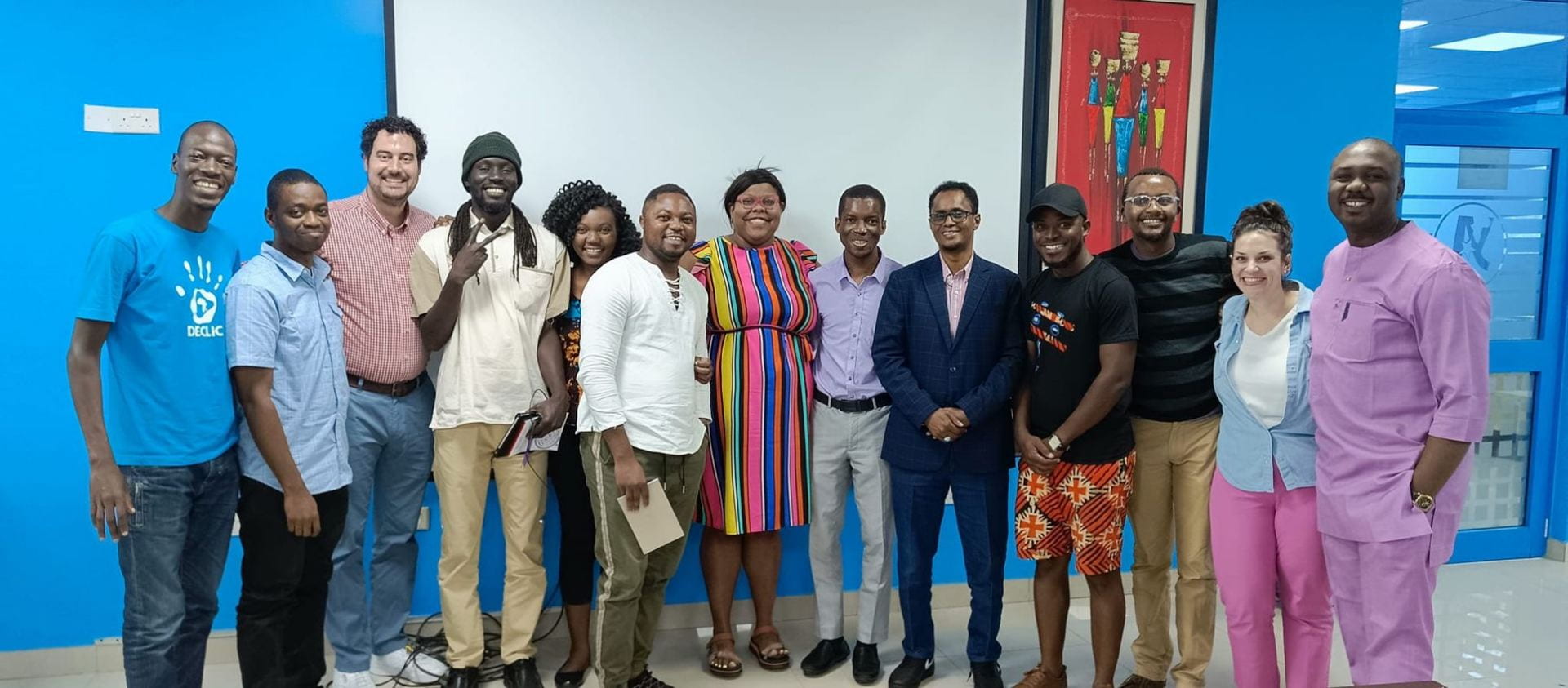The Staley School of Leadership launched the Leading Change Institutes (LCI) in 2015 to harness creative, collaborative thinking from globally recognized leaders addressing real issues with tangible strategies for moving forward.
In this series, practitioners who will participate in the upcoming Leading Change Institute will highlight practices and perspective of leadership in their communities. Each contributor is also an alumnus of the 2022 Mandela Washington Fellowship at Kansas State University.
These practitioners kicked off a Leading Change Institute on Advancing Perspectives of Leadership Movements and Strengthening Democratic Practices in Sub-Saharan Africa in March (View photos on our Facebook page).
This LCI will be a series of events repeated regionally throughout Sub-Saharan Africa through 2027.
 For decades leadership has been studied in the U.S. through a centrally western lens. This work has led to deep insights about strengthening practices of leadership that reflect democratic ways of knowing, being, and practicing leadership at individual, collective, and systemic levels. Leadership scholars understand less about how practices of leadership emerge globally and specifically in the Sub-Saharan Africa context.
For decades leadership has been studied in the U.S. through a centrally western lens. This work has led to deep insights about strengthening practices of leadership that reflect democratic ways of knowing, being, and practicing leadership at individual, collective, and systemic levels. Leadership scholars understand less about how practices of leadership emerge globally and specifically in the Sub-Saharan Africa context.
Today, the African continent boasts a population comprised of more than 60% youth under the age of 25. Globally this growth leads to an expectation that by 2030 Africans will constitute nearly 42% of the global youth. An investment in understanding the practices of leadership that exist (and perhaps have for millennia) and the practices that emerge as civic movements (e.g. SARS) take root continentally can inform how we understand leadership and practice it locally. Further, alignment with these practices can inform future diplomatic efforts globally.
The Leading Change Institutes are gatherings of small groups that work to collectively make sense of the big issues facing communities. The format is powerful: short gatherings of thought leaders committed to understanding a significant issue, organizing their work and their goal around a common theme. The intent of the Leading Change Institutes is to create space for conversations that will yield clear and tangible impacts. Individual expertise is engaged in dialogue to develop and harness new thinking, generate connections, and seed collaboration as a collective.
Participants represent diverse perspectives, coming from applied, academic, and policy circles in the private and nonprofit sectors. The challenges addressed in the institutes will not be solved in one year, so some topics will be repeated on a rotation to continue the effort for change.
“What I like about this structure is that the participants are going back home to do the work, not coming the U.S. Working on site is an advantageous because the work is happening where it needs to happen and by the people who are in the best position to do it,” said Chibuzor Azubuike, graduate teaching assistant at the Staley School of Leadership and leadership communication doctoral candidate.
Participants engaged in a workshop on community-engaged processes, including a train-the-trainer approach in the following areas:
- Coaching Group Processes
- Learning Leadership through Action Learning (dialogic) Processes
- Leadership-as-Practice overview and discussion
Participants mapped out an action project plan, discussed community-engaged research processes (methods and practical process), and planned with the team for next steps in the project.
Participants in this work from K-State include:
- Trish Gott, Ed.D., associate dean, assistant professor and director of the Leading Change Institutes
- Brandon Kliewer, Ph.D., associate professor of Civic Leadership who will lead the research effort
- Innocent Assoman, leadership communication doctoral student and graduate research assistant
- Anisah Ari, leadership communication doctoral candidate
- Chibuzor Azubuike, leadership communication doctoral candidate, serve on the planning committee
Participants on site included: Mr. Ahmed Afi, Somalia; Dr. Onyedika Ekwerike, Nigeria; Ms. Linda Sibanyoni, Zimbabwe; Mr. Norentz Gogan, Benin Republic, Mr. Salif Kanoute, Senegal; Mr. Macharia Gatundu, Kenya; Ms. Elizabeth Chunda, Zambia; Dr. Hilary Okeguale, Nigeria; Mr. Agustinus Ngombe, Namibia; Dr. Jillian Martin, Fulbright Scholar, Staley School affiliate faculty, Ghana; Mr. Seydina Ndiaye, Senegal
This was the first in a series that will include work to advance these ideas over the next five years. The next institute will be announced later this summer.
The Leading Change Institutes at Kansas State University are supported by the David and Ellie Everitt Endowment for the Leading Change Institutes. Learn more about the Everitts and their gift to support global connections and leading change at K-State.
